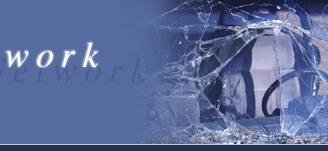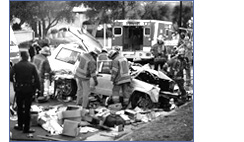


SUV Rollover Accident Lawyers FAQs
Are rollover accidents common?
SUV rollover accidents are very rare. Only about three percent of all accidents involve rollover, but rollovers are responsible for about 30% of fatal accidents. SUVs carry the highest risk of rollover.
Why are SUVs more likely to roll than other vehicles?
SUVs have a high center of gravity. The width of the wheel-base vs. the height of the vehicle and the placement of weight inside the vehicle all affect the center of gravity. Adding passengers and cargo to an SUV raises the center of gravity, increasing the likelihood of rollover.
What causes an SUV to roll?
Most rollovers are single vehicle accidents caused by “tripping.” Tripping occurs when a tire strikes an obstacle which suddenly slowly it down, and causing it to pitch forward or sideways. This can happen if the vehicle slides off the road and hits a soft shoulder or curb. A large pothole can even act as a tripping mechanism. Tire failure is a common tripping mechanism.
Can electronic stability control prevent a rollover?
Electronic stability control (ESC) can prevent the SUV from sliding or spinning out of control and initiating the rollover. These devices sense when the vehicle is going out of control and automatically make adjustments to help bring the vehicle under control. They cannot prevent the vehicle from rolling once it has struck a tripping mechanism.
What is roof crush?
Roof crush occurs when the roof of the vehicle enters the occupant space. Poor roof crush resistance is a common defect in SUVs. Hollow roof pillars and a lack of roll bars are often to blame. Injuries caused by roof crush include:
- Brain injury
- Spinal cord injury
- Neck injury
- Back injury
- Suffocation
- Ejection injuries
What are Rollover Resistance Ratings?
Rollover Resistance Ratings are designed to give you an idea of how likely a vehicle is to rollover compared to other vehicles. It does not indicate how likely you are to become injured should the vehicle roll.
What is crashworthiness?
Crashworthiness is the vehicle’s ability to protect occupants in the event of an accident. It has nothing to do with how likely a vehicle is to crash. Design flaws and other defects which can affect a vehicle’s crashworthiness include:
- Defective seat belts
- Defective airbags
- Defective door latch
- Defective fuel system
- Poor roof crush resistance
To learn more about SUV rollovers, visit our SUV accidents page.
E-mail us today to schedule your free initial consultation with an experienced SUV rollover accident lawyer.
![]()
Home / Auto
Accidents / Motorcycle Accidents / Truck
Accidents / SUV Rollover Accidents / Bus
Accidents / Pedestrian Accidents / Train
Accidents / Boating Accidents / Bicycle
Accidents / Slip and Fall Accidents / Dog
Bite Incidents / Construction Accidents
/ Elevator Accidents / Wrongful
Death / Contact Us / News / Blog / Site
Map
Copyright © 2006 Accident Lawyers Network provides information about SUV Rollover
accidents and personal injury.
|
Disclaimer:
The Accident Lawyers Network services all 50 states including
Alabama, Alaska, Arizona, Arkansas, California, Colorado, Connecticut,
Delaware, DC, Florida, Georgia, Hawaii, Idaho, Illinois, Indiana,
Iowa, Kansas, Kentucky, Louisiana, Maine, Maryland, Massachusetts,
Michigan, Minnesota, Mississippi, Missouri, Montana, Nebraska,
Nevada, New Hampshire, New Jersey, New Mexico, New York, North
Carolina, North Dakota, Ohio, Oklahoma, Oregon, Pennsylvania,
Rhode Island, South Carolina, South Dakota, Tennessee, Texas,
Utah, Vermont, Virginia, Washington, West Virginia, Wisconsin
and Wyoming. This does not mean, however, that allSport
Utility Vehicle accident lawsuits will be accepted and
we reserve the right to decline any representation. This site
only provides information about SUV rollover accidents and personal injury,
it is not meant to be taken as legal advice. Click
here for more. This website is not intended for viewing or usage by European Union citizens.
|

